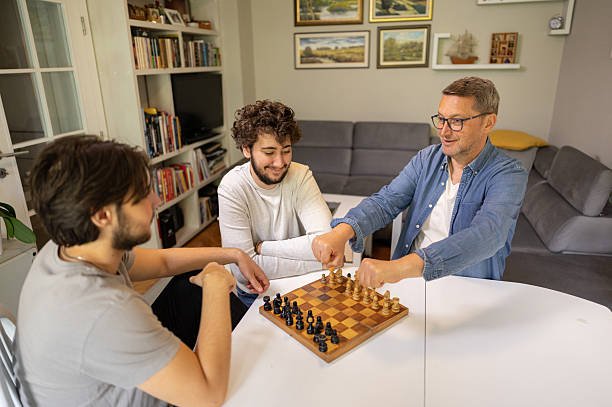If you live in Bilbao and want strong chess training for your child or for yourself, you are in the right place. Chess is a quiet game, but it builds a sharp mind. It teaches focus, patience, and clear thinking. These skills help at school, at work, and in daily life. Many families in Bilbao tell us they want lessons that feel simple, warm, and well planned. They want real progress they can see. They want coaches who care. That is what we offer.
At Debsie, we are an online chess academy with FIDE-certified coaches and a clear, step-by-step program. We teach live. We explain with simple words. We give personal feedback every week.
We run friendly online tournaments every two weeks so students can practice in a safe space. Our curriculum is built like a careful ladder: one small rung at a time, with no gaps. This means students do not feel lost or rushed. They grow with calm and confidence.
Online Chess Training
Online chess fits how families in Bilbao live today. You want strong teaching, clear goals, and kind support without wasting time in traffic or waiting for a room to open. With live online classes, the coach meets your child right where they are.
The board is on the screen, the voice is warm, and the feedback is instant. There is no rush to pack bags, no rain to fight, and no lost minutes. The focus stays on learning, not on getting to class.
Good online chess is not a video you watch and forget. It is a real lesson with a real coach who can see your moves and hear your thoughts. The coach can slow down when an idea feels new, or speed up when your child is ready.
If a pattern is hard, the coach brings fresh examples and walks through them step by step. If a plan is unclear, the coach shows simple rules you can use right away. Everything is clear, calm, and human.
The big win with online chess is structure. A strong program is built like a staircase. You learn the first step well, then go to the next. There are no gaps. You do not skip the basics and jump to hard lines.
You do not study endgames before you learn how to keep your king safe. You do not read five openings and forget all of them. Instead, you learn a few key ideas, practice them in small drills, and then use them in real games. Each week builds on the last one. This is how progress becomes steady and real.
Practice is also easier online. Your child can solve daily puzzles that match their level. They can play short training games on school nights and longer games on weekends. They can ask questions in class, then test the answer in a friendly game. Small wins pile up. Confidence grows.
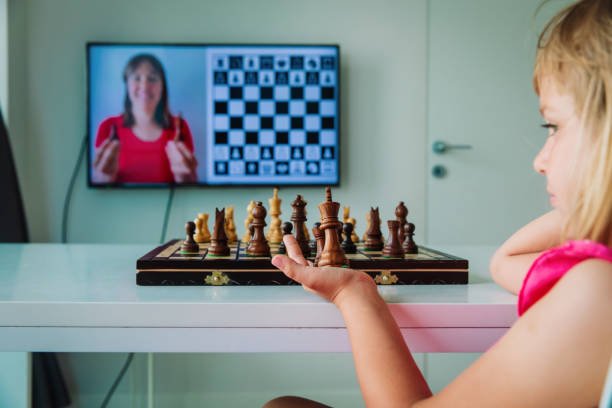
Landscape of Chess Training in Bilbao and Why Online Chess Training is the Right Choice
Bilbao is a city with heart, art, and bright minds. You see kids who love to learn, and parents who want the best for them. There are local chess spaces, school clubs, and weekend meetups. They bring joy and social play.
Still, many families tell us they struggle to keep a steady learning rhythm. Times change week to week. Coaches are busy. Rooms fill up fast. Travel eats evenings. The result is a start-stop pattern that slows growth.
In a busy city like Bilbao, time is precious. Online training gives that time back. Your child logs in from home at the same hour each week. The coach is ready. The lesson starts on time. There is no distraction from a crowded room or a noisy hall.
The coach can watch closely, spot small mistakes, and fix them on the spot. If your child hurries, we teach a short breathing pause before each move. If your child hesitates, we give a simple checklist to guide their choice. Every minute is used well.
Online training also opens a bigger world. In one month, your child can face players from many cities and styles. They learn to handle sharp attacks, slow maneuvers, and tricky endgames. They see that chess is both art and logic, full of ideas that repeat in new forms.
Bilbao families also care about safety and comfort. Home learning keeps the child in a known space. Parents can sit nearby, listen for a few minutes, and feel the tone of the class. If they have questions, they can speak to the coach without long waits.
Some people worry that online lessons might feel cold. That is true only when the teaching lacks heart. With the right coach, the screen becomes a window to a kind guide. The coach smiles, listens, and explains. The coach remembers what was hard last week and checks it again.
How Debsie is The Best Choice When It Comes to Chess Training in Bilbao
Debsie leads with clear teaching, kind coaches, and a proven plan. We teach live, not with recordings. We make hard ideas small and simple. We watch closely and guide each move.
Our coaches are FIDE-certified and trained to work with young learners, teens, and adults. They do not just tell you a good line. They show you why the line works, when it fails, and how to choose in a real game. They teach you to think, not to memorize.
When a student from Bilbao joins Debsie, we begin with a light assessment. It feels like a friendly chat over a board. We look at how you move in the opening, what tactics you see, how you plan the middle game, and how you finish simple endgames. From this, we make a personal map.
The map has clear steps for the next four to eight weeks. Each step has a focus, like safe development, pattern spotting, or rook endings. We set small tasks between classes that fit real life.
Ten to fifteen minutes of puzzles on weekdays can be enough to build strong pattern memory. One longer game on the weekend helps with stamina and endgame skills. Nothing is heavy. Everything is doable.
Our curriculum is deep but not messy. We begin with board vision and king safety. We add basic tactics like forks, pins, and mates in two. We teach openings as ideas, not as long lines. We choose openings that fit your style, so you feel at home from move one.
As you grow, we add pawn structure plans, piece activity rules, and how to build an attack without blunders. We then move to endgames you will meet the most, like king and pawn races, rook endings, and bishop versus knight plans. The aim is simple power you can use every week, not rare tricks you will never see.
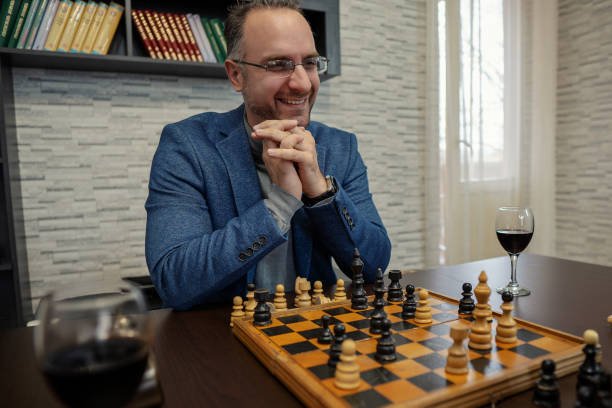
Offline Chess Training
Over-the-board chess has a special charm. In Bilbao, you can feel it when two players sit across a wooden board, press the clock, and look each other in the eye. That quiet room sound—pieces sliding, clocks ticking, a soft whisper between friends—can be lovely.
Face-to-face sessions also build a sense of local community. Parents meet other parents. Children make friends who share the same interest. Many families value that atmosphere, and it deserves respect.
Yet, when the goal is steady progress with clear steps, offline training often runs into limits that are hard to avoid. Time is the first one. Even a short drive across Bilbao, parking, and a walk to the venue can turn a one-hour lesson into a two-hour trip, and on a rainy evening it can take longer.
The second limit is pace. In a room with many boards, a coach divides attention among several students. That means less personal feedback, fewer focused corrections, and a rhythm set by the group rather than the learner.
The third limit is continuity. If a coach is away, if a room is booked, or if a school event collides, the chain breaks. In chess, breaks become plateaus. When gaps appear, early ideas fade, new ideas do not stick, and confidence wobbles.
So, while offline training can be a warm add-on for social play or local events, it struggles to provide the tight structure that turns potential into results. In a fast, busy city like Bilbao, families often need a plan that fits life, not a plan that asks life to fit it.
Drawbacks of Offline Chess Training
The first drawback is the lack of a common roadmap. Many offline groups teach “today’s theme” based on who shows up and what the coach feels is needed. That can be helpful for variety, but it is risky for growth. Without a planned path, ideas appear out of order.
A child might learn a fancy tactic long before they learn safe development. They might study an advanced endgame while still missing basic king safety. In chess, order matters. When ideas come in the right sequence, the mind builds strong patterns. When the sequence is random, patterns stay weak and results swing.
The second drawback is shallow feedback. In a shared room, the coach can only stop at each board for a moment. Small mistakes pass without correction. Habits that hurt long-term success—like moving too fast, ignoring checks, or trading the wrong pieces—stay hidden.
The third drawback is the heavy cost on family energy. A busy week with homework, sports, and music already stretches attention. Add travel and waiting, and a simple one-hour lesson can drain the evening. When energy is low, effort drops. When effort drops, learning slows.
Online training saves that energy. With one click, the lesson starts. When the lesson ends, there is no commute back home. The child can rest sooner, and the good habit of showing up each week stays alive.
The fourth drawback is inconsistency. Weather, traffic, room bookings, and coach schedules create surprise gaps. Gaps break momentum. In chess, momentum is precious. It is the gentle push that turns a curious child into a confident player. Protect it, and growth compounds. Lose it, and even bright children stall.
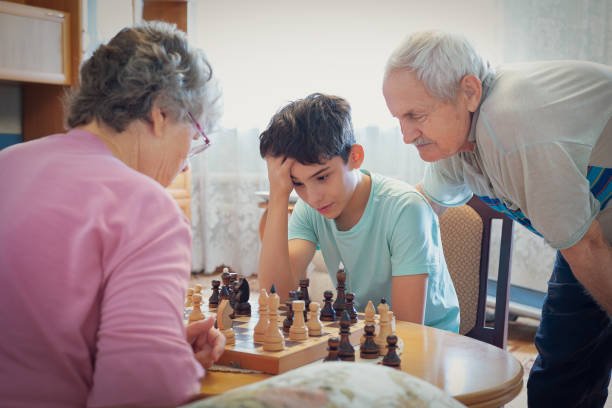
Best Chess Academies in Bilbao
Bilbao offers a small but proud chess scene. You can find local clubs, regional groups, private tutors, and school-based enrichment. They are good places to meet people and touch real boards.
For a family that wants deep progress and a schedule that actually sticks, Debsie stands out as the top choice. We will keep details for other options brief so you can compare quickly and see why our approach helps most students more, and faster.
1. Debsie
Debsie is number one for students in Bilbao who want clear teaching, steady structure, and kind coaches who truly listen. We teach live online with FIDE-certified coaches who care about progress and joy in equal measure. We begin with a light, friendly assessment.
We check how you develop pieces, how you spot tactics, how you plan the middle game, and how you handle easy endgames. We do this without stress. From that picture, we create a personal plan for the next few weeks. The plan is simple, with one focus at a time, so wins come early and confidence builds.
Our curriculum flows in a clean line. First, we teach strong habits: protect the king, fight for the center, bring pieces out, and connect rooks. Then we build pattern memory with simple tactics done daily in small sets. We present openings as ideas, not long lists.
That way, students understand what the pieces want to do rather than try to memorize a book. We guide your child to two or three opening families that fit their style, so they feel calm from move one. As they grow, we teach planning with pawn structures, piece activity, and safe attacking steps.
We also teach how to defend with pride, because good defense wins many real games. For endgames, we focus on the ones that appear often: king and pawn races, rook activity, opposition, and how to use a passed pawn with care.
We place a strong focus on mindset. Many students rush when they see an idea. We teach a tiny move routine they can repeat every turn: check if the king is in danger, list forcing moves, choose a plan they can explain in one clean sentence, and then play with calm hands.
That routine takes seconds but saves games. When a blunder happens—and it will happen—we teach a reset. Breathe, forgive, look for the next best move. This habit changes chess, school, and life because it turns stress into action.
2. Bilbao Chess Club and Community Groups
Local clubs and small community groups can be a nice doorway to over-the-board play. They bring people together and host casual game nights. Some offer group lessons when a coach is available.
The experience is social and friendly, but structure can vary based on attendance and room time. If you want steady, personal feedback with a long-term path, Debsie provides a clearer, more reliable route while you enjoy local meetups as a bonus.
3. Regional Basque Chess Programs
Across the region, there are periodic workshops, school outreach days, or short holiday camps. These can be inspiring. A good guest coach can light a spark. The challenge is what happens after the weekend ends.
Without a weekly plan, that spark fades. Debsie turns short inspiration into lasting growth by giving your child a simple routine, a kind coach, and a clear curriculum that continues week after week.
4. Private Tutors in the City
Some private tutors meet in homes, libraries, or cafés. A strong tutor can help, but schedules can shift, and long breaks can appear during busy periods. Without the backbone of a larger program, progress may depend on the tutor’s availability rather than the child’s needs.
Debsie offers the one-to-one care you want with the safety of a full academy: consistent curriculum, flexible slots, regular tournaments, and transparent reporting for parents.
5. After-School Enrichment Providers
Several after-school providers include chess as part of a broader set of activities. This is a good way to let children taste the game. Sessions are short and group sizes vary, so the teaching can feel light. Debsie fits well alongside these programs.
Keep the social play at school, and anchor real skill-building at home with our live lessons, puzzle plans, and gentle tournaments. That pairing gives the child joy and progress at the same time.
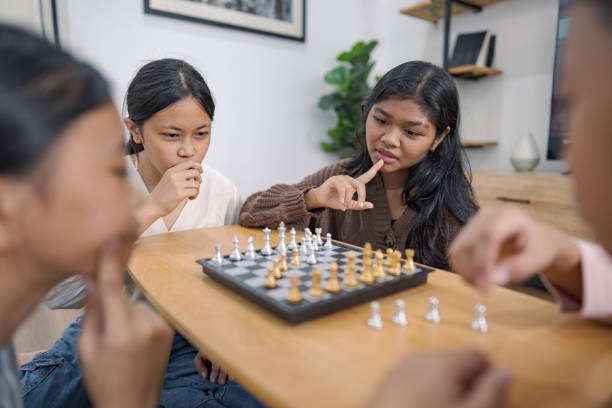
Why Online Chess Training is The Future
Online learning matches the way modern families live, and chess is perfect for this medium. It is a game of clear patterns and quiet thought, and both work beautifully on a digital board with a coach who can annotate in real time. The reach of online training also changes what is possible.
A child in Bilbao is no longer limited to one room, one group, and one style. They can learn from FIDE-certified coaches, meet players from many countries, and see how ideas repeat in different forms. This broad view builds a stronger chess mind.
Technology supports growth in a way that pen-and-paper cannot. We can track puzzle accuracy, time spent on choices, common mistake patterns, and opening comfort. We translate those numbers into tiny actions for the next class.
This is not about pressure; it is about clarity. When a child knows exactly what to practice and why, they practice with heart. As weeks pass, the data becomes a simple story of progress. Parents can read that story in plain words and feel calm about the path ahead.
The future also values soft skills—focus, patience, and grit. Online chess training builds these skills during every class. Students learn to slow down, breathe, and choose. They learn to plan in steps and stick to the plan.
They learn to recover after a mistake without drama. These habits help with exams, essays, sports, and friendships. A child who can pause, think, and act with care will thrive in many areas of life.
Bilbao is a city that embraces art and innovation. Online chess belongs to that spirit. It saves travel time, protects energy, and keeps a rhythm that children can maintain for months and years.
How Debsie Leads the Online Chess Training Landscape
Debsie leads with a teaching style that is both precise and gentle. We break hard ideas into tiny, friendly steps. We build from the board outward: solid openings as ideas, active pieces in the middle game, and calm technique in the endgame.
We do not teach tricks for their own sake. We teach the patterns that win real games. We use stories and short rules to make choices clear. We repeat only what matters, and then we help the student use it right away. This is how understanding grows.
Our coaches are handpicked for kindness as much as for strength. They listen before they explain. They ask small questions to see how the student thinks, and then tailor the next minute to what they heard.
This makes each class feel like a one-on-one conversation, even when the student joins a small group. With one-to-one coaching, that feeling becomes even stronger. The student feels seen, which is the key to motivation.
We also design a rhythm that supports families. Short weekday puzzles keep patterns fresh. One weekend game builds stamina and endgame skill. Bi-weekly tournaments add safe, friendly pressure.
Progress notes keep parents informed without stress. If the family travels, class follows. The system is resilient, so growth does not stop.
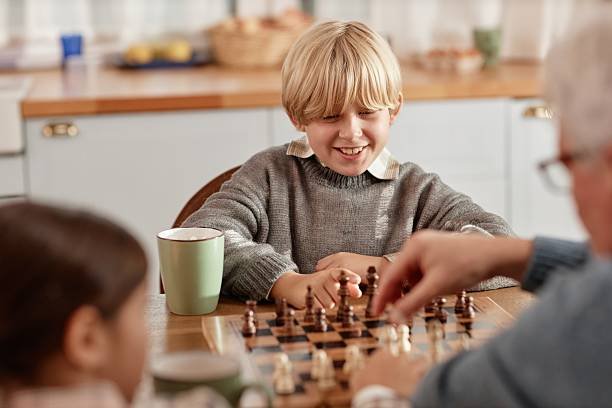
Conclusion
If you want strong chess growth in Bilbao, choose a path that is simple to follow, easy to keep, and proven to work. That path is online training with a kind coach, a clear plan, and steady feedback. This is what we do at Debsie every single day. We teach live. We listen first. We explain with plain words.
We set tiny steps that add up to real power on the board and quiet confidence off it. Your child learns to pause, think, and choose. They learn to handle pressure, finish wins without rushing, and bounce back from mistakes with a calm mind. Those skills help in school, at home, and in life.
Bilbao has a warm chess community, and local play can be a nice extra. But the core of long-term progress needs structure, consistency, and personal care. Offline options often struggle with travel, timing, and gaps. Our online model removes those barriers.
You get FIDE-certified coaches, a friendly curriculum that grows with the student, and bi-weekly tournaments that turn lessons into wins. The result is steady improvement you can see on the board and in your child’s habits.
Comparisons With Other Chess Schools:
